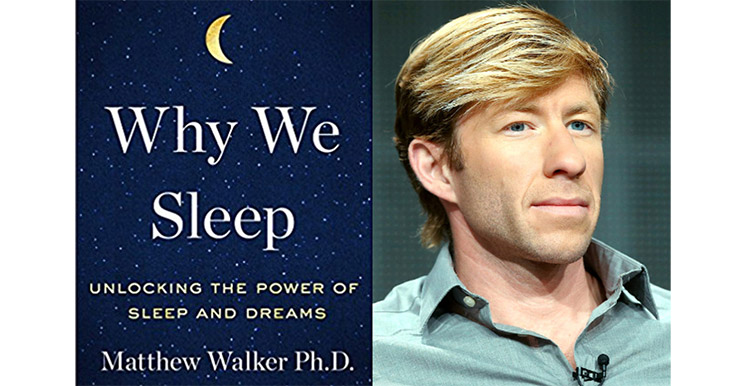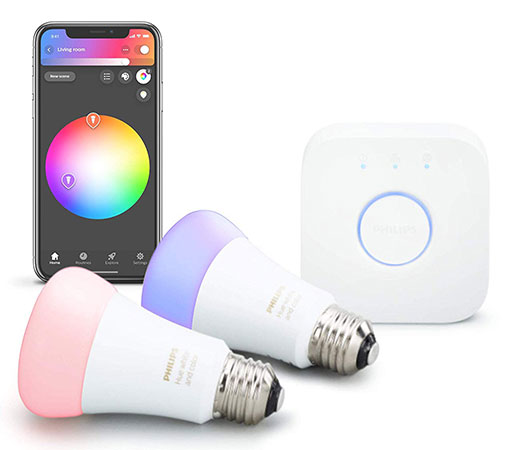This Newsletter we are focusing on how we can improve our sleep.
Matthew Walker’s book; Why We Sleep was a game changer for me. I’d known for a long time that sleep was important; the extent to which was unclear. Matthew puts it succinctly when he says “There is not one process in the human body, (that we’re aware of) that isn’t improved by sleep”. Indeed, the International Agency for Research on Cancer (part of the WHO), concluded in 2007 that night shift work is a probable human carcinogen1
Sleep loss is linked to the acceleration of a plethora of common issues, including:
- Cancer
- Diabetes & Weight Gain
- Heart Disease
- Poor fertility
- Weakened immune system
- DNA damage
But what is adequate? 8 hours appears to be the minimum we should strive for. Apparently there’s a tiny % of people with DNA mutations that allow them to function well below 8 hours; but it’s a minority.

Last month we featured Matthew Walker’s book in this newsletter with a Book Review.
Matthew’s Tips for Good Sleep
Below I’ll summarise Matthew’s 12 key tips for good sleep:
1. Stick to a sleep schedule
We should aim to go to bed and wake up at the same time each day. People generally have a hard time adjusting to changes in sleep patterns. Unfortunately sleeping late on weekends doesn’t make up for poor sleep during the week. If necessary, set an alarm for bedtime. Matthew emphasizes this is the #1 priority from the list; stick to a regular sleep schedule.
2. Don’t exercise too late in the day
Exercise is great, and we should try to exercise at least 30 minutes on most days. But try to time it no later than 2-3 hours before bed.
3. Avoid caffeine & nicotine
Colas, coffee, teas (that aren’t herbal) and chocolate contain caffeine, which is a stimulant. Even consuming these in the afternoon can have an affect on your sleep. Nicotine is also a mild stimulant, and smokers will often wake up earlier than they would otherwise, due to nicotine withdrawal.
4. Avoid alcoholic drinks before bed
The presence of alcohol in the body can reduce your REM sleep, keeping you in the lighter stages of sleep.
5. Avoid large meals and beverages late at night
A lights snack before bed is okay, but a heavy meal can cause digestive issues, which interfers with sleep. Drinking too many fluids can cause freuqent awakenings to urinate.
6. Avoid medicines that delay or disrupt your sleep (where possible)
Some commonly prescribed heart, blood pressure or asthma medications, as well as some over the counter and herbal medicines for coughs colds or allergies can disrupt sleep patterns. If you have trouble sleeping, it may be worth speaking to your doctor or pharmacist to see if any of the drugs you’re taking may be contributing to this. It may be possible to take them earlier in the day.
7. Don’t nap after 3pm
Naps are great, but taking them too late in the day can make it hard to fall asleep at night.
8. Make sure to leave time to relax before bed
It’s important to have time before bed to unwind. Try to schedule your days so that there is time to relax before bed.
9. Take a hot bath before bed
The drop in body temperature after a bath may help you to feel sleepy, and the bath can help you to slow down and relax before bed.
10. Have a dark, cool (in temperature), gadget free bedroom
We sleep better at night if the temperature in the room is kept on the cool side. Gadgets such as mobile phones and computers can be a distraction. Additionally the light they emit, especially the blue light, suppresses the secretion of melatonin. Melatonin being a hormone that regulates sleep/wake cycles – with it increasing in the evening to induce sleep. There are things we can do to reduce the blue light at night, including:
- Using blue light filters on our phones & tablets. iOS 9.3 or later (iPhone 5S & iPad 2 onwards) has this built in – called Night Shift. On Android there are apps for this, a popular one being Twilight.
- Using blue light filters on our computers. For MacOS & Windows f.lux is a popular solution. Windows 10 also has a built in “Night Light” function that offers similar functionality.
- Using blue light filters on our home lighting system. A popular solution to this are Philips Hue bulbs, which connect wirelessly to your router, and can be programmed to reduce blue light during certain times of day. So for example, if your bedtime is 11pm, you can set the bulbs to reduce blue light from 10pm onwards… which will increase your melatonin level, preparing you for sleep.

A comfortable mattress and pillow can set you up for a good sleep. Those with insomnia will often watch the clock, turn it away from view so you don’t have to worry about the time while trying to sleep. Use these tips to optimize your sleeping space.
11. Get the right sunlight exposure
Sun exposure during the day helps us to regulate sleeping patterns. Try to get outside in the natural sunlight for at least 30 minutes per day.
12. Don’t stay in bed if you (really) can’t sleep
If you find yourself still in bed for more than 20 minutes, or you’re starting to get anxious in bed, get up and do something else until you feel sleepy. Anxiety whilst trying to sleep can make it harder to fall asleep.
Quote of the Day
“I believe it is time for us to reclaim our right to a full night of sleep…
Then we may remember what it feels like to be truly awake during the day,
infused with the very deepest plenitude of being.”
-Matthew Walker
